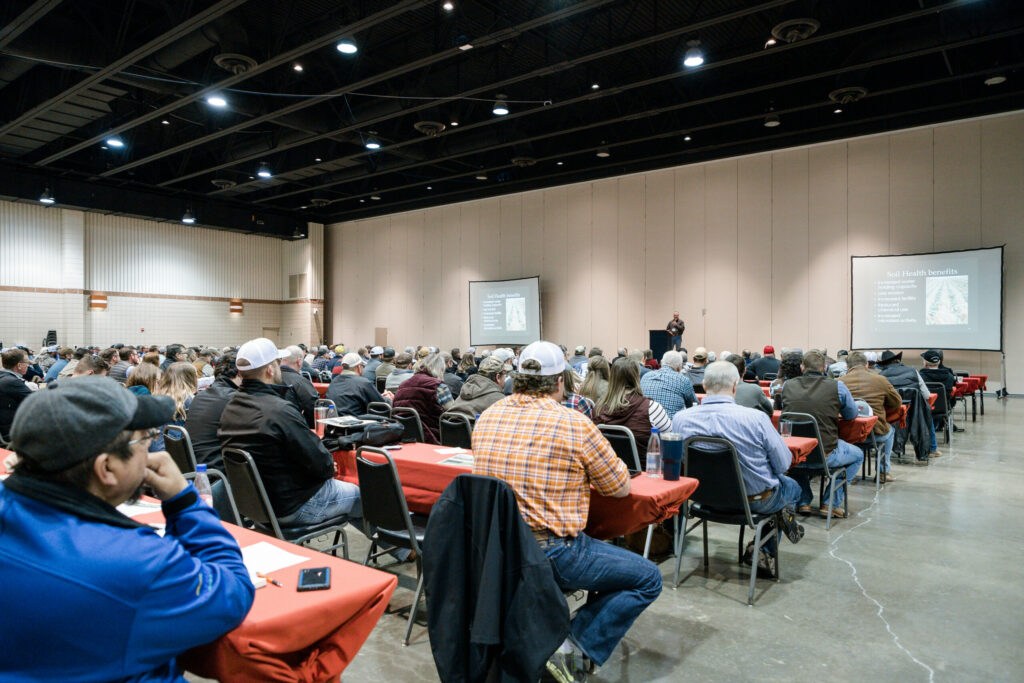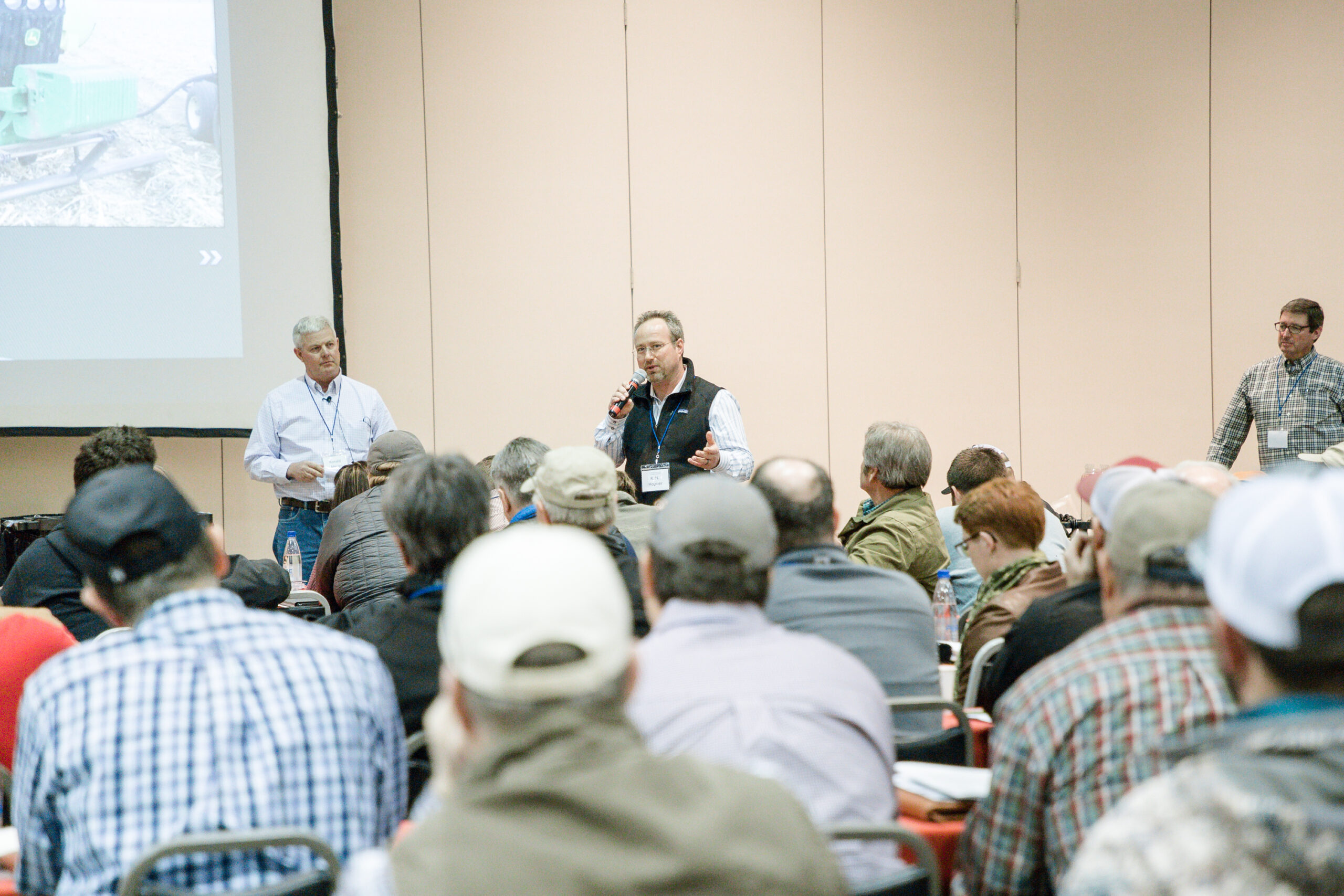“I think we live in a pretty perfect world. I just don’t think we have found a perfect production system,” R.N. Hopper said, a farmer from Petersburg, Texas.
A group of forward-thinking farmers recently came together at the Soil Health Symposium to discuss this challenge and spark a change in the future of agricultural production. The event was hosted by No-Till Texas, a farmer-led, non-profit organization that promotes soil health and regenerative farming practices in the Panhandle and South Plains of Texas.
Hopper, president of No-Till Texas, said the symposium was organized completely by the farmer-run board to offer an opportunity for farmers, academia and industry experts to interact with one another and share new techniques that assist in sustainability and profitability.

This year, No-Till Texas tailored a curriculum that involved both crop and livestock production with a focus on biology and regenerative agriculture. Attendees had the chance to listen to a diverse panel of speakers, including farmers, agricultural scientists and industry experts.
“It’s about putting the land first, and that’s really what regenerative agriculture is all about,” Hopper said. “When you put the health of the land first, everything else falls into place – the land is healthy, it’s vibrant, it’s productive.”
Diving into the benefits of investing in healthy soil, Kelly Kettner, vice president of No-Till Texas and farmer from Muleshoe, Texas, shared his experience in using a whole toolbox of management systems to enhance his soil microbiome.
“Microbes play a very important role in soil, and there are things we do that hurt them and there are things we do that help them,” Kettner said.
By using no-till practices, crop rotation, cover crops and more, Kettner said he is able to enhance his soil microbiome, which creates a chain reaction of benefits.
Addressing the health of the land through microbiological research helps farmers use fewer inputs, like water for example. These practices also add more nutrients to the soil while providing an armor against erosion. Conservation and regenerative agriculture can also lead to higher yields and increased productivity. Perhaps the most important benefit though is rebuilding and maintaining the farm ecosystem – soil, nutrients, water – for the future of sustainable food production and a healthy environment.
As David Johnson, Ph.D., a professor at New Mexico State University, stated during his presentation to the group, “There is no planet B.”
“I hope that people learn to view their farms as living and breathing ecosystems that are teeming with life because that’s something I missed for about the first 30 years of my life,” Hopper said.
The idea for No-Till Texas and the Soil Health Symposium hatched when R.N. Hopper and Kelly Kettner attended the No-Till on the Plains conference in Kansas five years ago and were working to make the switch to conservation-minded farming in Texas.
“No-till Texas was a dream that I shared with Kelly Kettner,” Hopper said. “We dreamed of having a group that could advance soil health. To help our friends, neighbors and ourselves find a more productive future together than we would ever find alone.”
Hopper said more and more farmers became interested in this soil health initiative and they started hosting field days on his family’s farm in Petersburg, Texas, from 2014-2017 to begin building a farming community focused on soil health. In late 2017, their dream became a reality when they founded No-Till Texas and held the first Soil Health Symposium in 2018. Currently, they are joined on the board by Ronald Meyer of Stratford, John Reznik of Dumas and Barry Evans of Kress.
“It’s really hard to do this by yourself,” Hopper said. “We’ve made a lot of mistakes in our no-till journey. It makes it a lot easier if you can talk to other people that have already been through it.”
Kris Verett, a young farmer in Crosby County, Texas, said the No-Till Texas Soil Health Symposium has been invaluable in obtaining information and data from neighbors who farm in the same environment.
“The ways we’ve been doing it worked at the time, but times change and continue to evolve,” Verett said. “We have to evolve if we want to continue to be profitable and also stay on the land to continue growing food and fiber.”
Forty-four industry allies also supported the event as sponsors, including the USDA Natural Resources Conservation Service, Texas Corn Producers and Water Grows. NRCS also partners with farmers and ranchers in their soil health and conservation efforts.
The annual conference will move to different locations throughout the region to garner attendance and diversity all in the hopes of a regenerative future.
“I hope that the future of Texas agriculture goes beyond conservation and the new standard will be regenerative agriculture,” Hopper said. “That we leave the land in a better place than where we found it, and we teach the next generation to do the same.”
